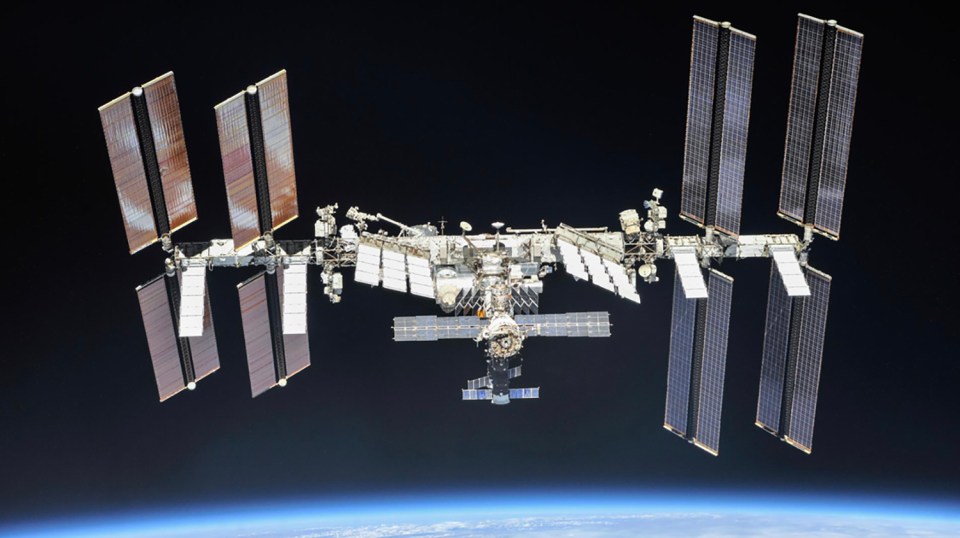Bizarre change to astronaut’s minds detected after trips to ISS – and it only returns to normal ‘back on Earth’
Astronauts’ thoughts during space travel are impacted by an SURPRISING shift.
In a ground-breaking study, space heroes who spent an average of six months on the ISS were examined.
Additionally, it was discovered that astronauts’ “cognitive performance” was momentarily slowed down.
Crucially, some of these modifications persisted after the astronauts returned to Earth.
Scientists have long been aware of the challenges facing the human body, such as radiation exposure, bone loss, and sleep issues.
However, researchers have now demonstrated that astronauts’ cognitive abilities can also deteriorate while they are in space.
Read more on Nasa
Twenty-five astronauts were examined and subjected to a battery of tests.
This involves taking several measurements of their accuracy and speed.
Pre-mission, early and late flight, and 10 and 30 days post-landing were all included in it.
In comparison to when on Earth, they discovered that astronauts reacted more slowly in terms of speed, working memory, and attention.
The astronauts weren’t any less precise, though.
“Cognitive performance was generally stable over time with some differences observed across mission phases for specific subtests,” the study, which was published in Frontiers in Physiology, stated.
Nasa 2030 Moon car to face -240C ‘fortnight of darkness’ to set up base
Early flight performance on tasks involving sustained attention, visual working memory, and processing speed was shown to be slower.
“During the late flight and post-flight mission periods, we noticed a decline in the inclination to take risks.
It stated that “Exploratory analyses yielded no clear pattern of associations between cognitive performance and either sleep or ratings of alertness.”
Crucially, though, researchers found no indication of long-term cognitive issues or brain damage.
How does space affect the body?

The effects of space on the human body are substantial and include:
- Redistribution of fluid around body due to long periods of weightlessness
- Bone density loss in critical areas such as lower limbs and spine
- Muscle atrophy
Muscle loss is inevitable in space, even though ISS crew exercise for an average of 2.5 hours per day.
Recuperation following a six-month spaceflight takes years.
Long after astronauts have returned to Earth, they may continue to experience health issues, such as:
- Higher risk of bone fracture
- Increase in erectile dysfunction
- Cancer risk due to radiation exposure
Image Source: NASA
Dr. Sheena Dev, a researcher at NASA’s BehavioralHealthand Performance Laboratory, stated, “We demonstrate that there is no evidence of any significant cognitive impairment or neurodegenerative decline in astronauts spending six months on the ISS.”
“Living and working in space was not associated with widespread cognitive impairment that would be suggestive of significant brain damage.”
Unfortunately, the study did not pinpoint the precise cause of the changes.
Researchers suggested that it might be connected to stress.
“Even on Earth, processing speed, working memory, and attention are cognitive domains that can show temporary changes when an individual is under stress,” Dev said.
Stressors have less of an effect on other areas, like memory.
Read More on The US Sun
For instance, you may feel that it’s difficult to focus or that you need more time to do chores if you have a very busy day but didn’t get much sleep the night before.
“We found that the most vulnerable domains while astronauts are aboard the ISS are the same as those that are more susceptible to stressors on Earth.”
What is the ISS?
What you should know about the International Space Station is as follows…
- The International Space Station, often abbreviated to ISS, is a large space craft that orbits Earth and houses astronauts who go up there to complete scientific missions
- Many countries worked together to build it and they work together to use it
- It is made up of many pieces, which astronauts had to send up individually on rockets and put together from 1998 to 2000
- Ever since the year 2000, people have lived on the ISS
- Nasa uses the station to learn about living and working in space
- It is approximately 250 miles above Earth and orbits around the planet just like a satellite
- Living inside the ISS is said to be like living inside a big house with five bedrooms, two bathrooms, a gym, lots of science labs and a big bay window for viewing Earth
Note: Thank you for visiting our website! We strive to keep you informed with the latest updates based on expected timelines, although please note that we are not affiliated with any official bodies. Our team is committed to ensuring accuracy and transparency in our reporting, verifying all information before publication. We aim to bring you reliable news, and if you have any questions or concerns about our content, feel free to reach out to us via email. We appreciate your trust and support!















